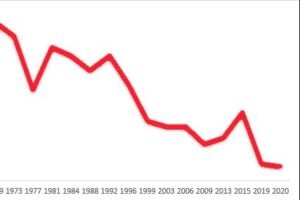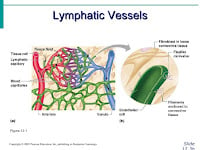New Rand research shows 75% of dementia costs are from at-home or nursing-home care. Often reaching $70,000 a year, watch medical correspondent Dr. Jon LaPook explain who’s paying for Alzheimer’s care.
The monetary cost of dementia in the United States ranges from $157 billion to $215 billion annually, making the disease more costly to the nation than either heart disease or cancer, according to a new RAND Corporation study.
The greatest economic cost of dementia is associated with providing institutional and home-based long-term care rather than medical services, according to the findings published in the April 4 edition of the New England Journal of Medicine. The study, funded by the National Institute on Aging, is the most-detailed examination done in recent decades on the costs of dementia.
The prevalence of dementia increases strongly with age and the analysis suggests that the costs of dementia could more than double by 2040 if the age-specific prevalence rate of the disease remains constant as the nation’s population continues to grow older.
“The economic burden of caring for people in the United States with dementia is large and growing larger,” said Michael Hurd, the study’s lead author and a senior economist at RAND, a nonprofit research organization. “Our findings underscore the urgency of recent federal efforts to develop a coordinated plan to address the growing impact of dementia on American society.”
The new cost estimates are lower than ones reported previously by the Alzheimer’s Association. Researchers say the new study provides a clearer picture of the economic burden caused by the disease because it eliminates costs related to other illnesses suffered by dementia patients, accounts for variations in the severity of dementia and uses a better estimate of the incidence of the illness.
Dementia is a chronic disease of aging characterized by progressive cognitive decline that interferes with independent functioning. The illness includes Alzheimer’s disease and other disorders.
In 2011, President Obama signed the National Alzheimer’s Project Act, which calls for increased efforts to find new treatments and to provide improved care for those with dementia. The law also requires that the financial costs of dementia be tracked.
The new study is based on findings from the Health and Retirement Study, an ongoing survey of individuals in the United States age 51 and older that began in 1992, and is supported by the National Institute on Aging and the Social Security Administration. A subset of that study group received a detailed in-home clinical assessment for dementia as part of the Aging, Demographics and Memory Study, a nationally representative examination of dementia in the United States.
The survey included an assessment of whether people could perform daily activities such as dressing themselves and preparing their own meals. Participants also were asked about their out-of-pocket health care expenses for services such as nursing home stays, home health care and other medical services. Other questions asked whether they received help from others for their daily living activities. Medicare spending information was linked to medical claims for most participants.
The study estimates that 14.7 percent of Americans aged 71 or older suffered from dementia in 2010, a number somewhat lower than what has been found in other, smaller studies.
The total economic cost of dementia in 2010 was estimated to be $109 billion for care purchased, and $159 billion to $215 billion when the monetary value of informal care is included. The range of estimates reflects two different methods researchers used to place a value on unpaid care. The per-person cost of dementia was $56,290 or $41,689. Medicare paid about $11 billion of dementia-related costs.
Researchers say the main component of the dementia costs is for institutional and home-based long-term care rather than medical services. The cost of nursing home care, and formal and informal home care comprise 75 percent to 84 percent of dementia costs.
“People with dementia do not get much more additional health care services than other people,” Hurd said. “The real drivers of the cost are for non-medical care.”
The cost of dementia care purchases ($109 billion) was similar to the estimated of the direct health care costs for heart disease ($102 billion) and significantly higher than the direct health costs for cancer ($77 billion). However, the costs for cancer and health disease do not include the cost of informal care, which is likely to be larger for dementia.
“There are no signs that the costs of dementia will decrease given that the nation will have a larger number of 85-year-olds in the future than we do today,” Hurd said. “Unless there is some sort of medical breakthrough, these costs will continue to rise.”
Other authors of the study are Francisco Martorell, Adeline Delavande and Kathleen J. Mullen of RAND and Kenneth M. Langa of the University of Michigan.
RAND Labor and Population examines issues involving U.S. labor markets, the demographics of families and children, social welfare policy, the social and economic functioning of the elderly, and economic and social change in developing countries.
Learn More
About the RAND Corporation
The RAND Corporation is a nonprofit institution that helps improve policy and decisionmaking through research and analysis.











